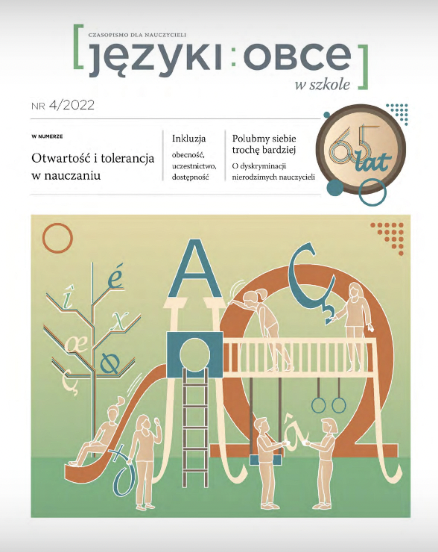Wpływ tolerancji wieloznaczności na akwizycję języka obcego
The impact of ambiguity tolerance on foreign language acquisition
Author(s): Brygida LikaSubject(s): Language studies
Published by: Fundacja Rozwoju Systemu Edukacji
Keywords: ambiguity tolerance; learners profiles; language skills; self-assessment; school; grades
Summary/Abstract: Foreign language acquisition is influenced by many external and internal factors also known as individual differences. The personality trait, ambiguity tolerance, is one of the individual differences which ranges from a low level to a high level. The level of this trait determines students’ approach to learning a foreign language as well as behaviour in a classroom. Empirical research has allowed to create students’ profiles with low, medium, and high levels of this trait. Students with a high level of ambiguity tolerance achieve higher grades and have higher self-assessment of their language skills and are eager to participate in an educational process. Those with a medium level of this trait, achieve good grades and have a medium level of self-assessment that coincides with external assessment. They often depend on their teacher expecting confirmation that their thinking is good. Students with a low level of ambiguity tolerance achieve low grades, have very low self-assessment and a high level of language anxiety. Ambiguity tolerance plays an important role in foreign language acquisition, therefore, teachers' awareness of the importance of this trait and activities that can translate into students' educational success should be raised.
Journal: Języki Obce w Szkole
- Issue Year: 2022
- Issue No: 4
- Page Range: 47-53
- Page Count: 7
- Language: Polish

